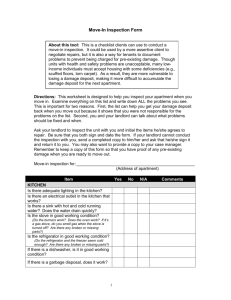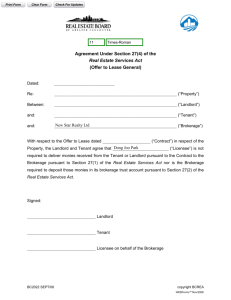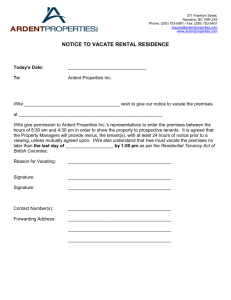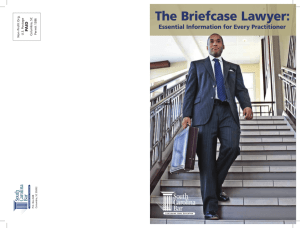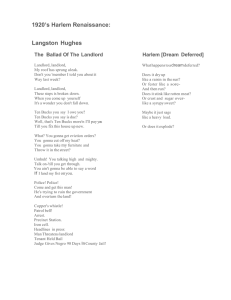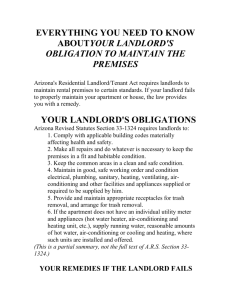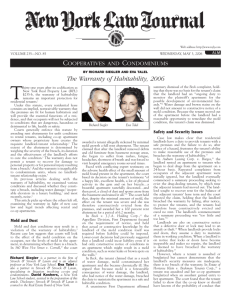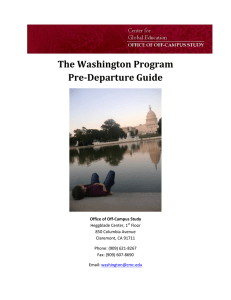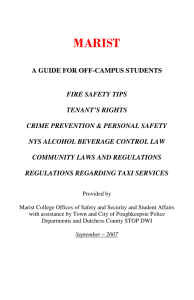Tenant's Rights
advertisement
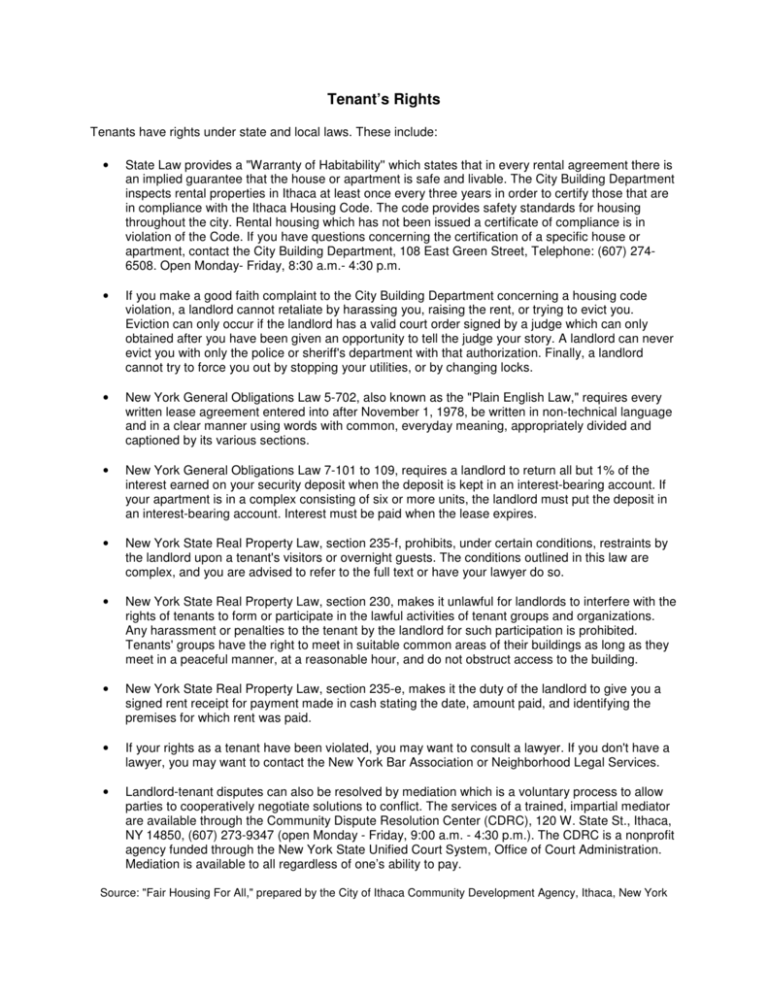
Tenant’s Rights Tenants have rights under state and local laws. These include: • State Law provides a "Warranty of Habitability'' which states that in every rental agreement there is an implied guarantee that the house or apartment is safe and livable. The City Building Department inspects rental properties in Ithaca at least once every three years in order to certify those that are in compliance with the Ithaca Housing Code. The code provides safety standards for housing throughout the city. Rental housing which has not been issued a certificate of compliance is in violation of the Code. If you have questions concerning the certification of a specific house or apartment, contact the City Building Department, 108 East Green Street, Telephone: (607) 2746508. Open Monday- Friday, 8:30 a.m.- 4:30 p.m. • If you make a good faith complaint to the City Building Department concerning a housing code violation, a landlord cannot retaliate by harassing you, raising the rent, or trying to evict you. Eviction can only occur if the landlord has a valid court order signed by a judge which can only obtained after you have been given an opportunity to tell the judge your story. A landlord can never evict you with only the police or sheriff's department with that authorization. Finally, a landlord cannot try to force you out by stopping your utilities, or by changing locks. • New York General Obligations Law 5-702, also known as the "Plain English Law," requires every written lease agreement entered into after November 1, 1978, be written in non-technical language and in a clear manner using words with common, everyday meaning, appropriately divided and captioned by its various sections. • New York General Obligations Law 7-101 to 109, requires a landlord to return all but 1% of the interest earned on your security deposit when the deposit is kept in an interest-bearing account. If your apartment is in a complex consisting of six or more units, the landlord must put the deposit in an interest-bearing account. Interest must be paid when the lease expires. • New York State Real Property Law, section 235-f, prohibits, under certain conditions, restraints by the landlord upon a tenant's visitors or overnight guests. The conditions outlined in this law are complex, and you are advised to refer to the full text or have your lawyer do so. • New York State Real Property Law, section 230, makes it unlawful for landlords to interfere with the rights of tenants to form or participate in the lawful activities of tenant groups and organizations. Any harassment or penalties to the tenant by the landlord for such participation is prohibited. Tenants' groups have the right to meet in suitable common areas of their buildings as long as they meet in a peaceful manner, at a reasonable hour, and do not obstruct access to the building. • New York State Real Property Law, section 235-e, makes it the duty of the landlord to give you a signed rent receipt for payment made in cash stating the date, amount paid, and identifying the premises for which rent was paid. • If your rights as a tenant have been violated, you may want to consult a lawyer. If you don't have a lawyer, you may want to contact the New York Bar Association or Neighborhood Legal Services. • Landlord-tenant disputes can also be resolved by mediation which is a voluntary process to allow parties to cooperatively negotiate solutions to conflict. The services of a trained, impartial mediator are available through the Community Dispute Resolution Center (CDRC), 120 W. State St., Ithaca, NY 14850, (607) 273-9347 (open Monday - Friday, 9:00 a.m. - 4:30 p.m.). The CDRC is a nonprofit agency funded through the New York State Unified Court System, Office of Court Administration. Mediation is available to all regardless of one’s ability to pay. Source: "Fair Housing For All," prepared by the City of Ithaca Community Development Agency, Ithaca, New York


